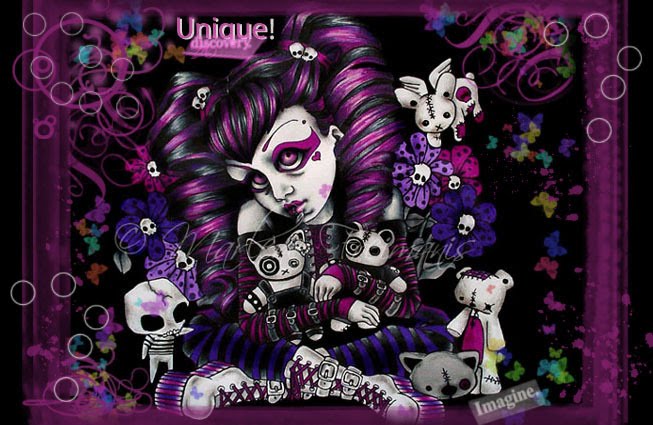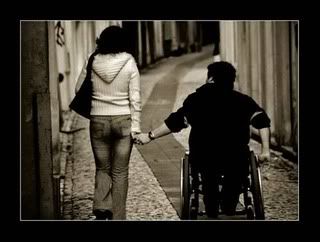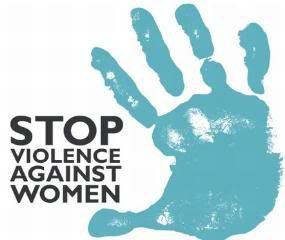L.O.V.E
What is a healthy relationship?
As social beings, humans thrive on meaningful relationships that make life more fulfilling and purposeful. Healthy relationship is based on premises such as respect, trust, honesty, accountability and shared responsibility. People in positive relationships are generally affirming and supportive and show non-intimidating behavior towards one another even during challenging times. There are however, instances where intense feelings of care and concern transcend natural affection and abuses can take place.

 Abuses can take physical, verbal, emotional and even sexual forms. It can happen in any setting and relationship. A few possible signs that a person is being abused include unexplained bruises, bite marks, cuts and wounds on the body, or that the person is showing a deep sense of guilt or fear without cause. However, not all abuses are obvious and blatant as some can be subtle. It may not be easy to detect abuses as they could be under the guises of love and affection. As such, it is important that you recognize the tell-tale signs that you are being abused and seek professional help.
Abuses can take physical, verbal, emotional and even sexual forms. It can happen in any setting and relationship. A few possible signs that a person is being abused include unexplained bruises, bite marks, cuts and wounds on the body, or that the person is showing a deep sense of guilt or fear without cause. However, not all abuses are obvious and blatant as some can be subtle. It may not be easy to detect abuses as they could be under the guises of love and affection. As such, it is important that you recognize the tell-tale signs that you are being abused and seek professional help. Possible signs of warning
· The person frequently belittles you or makes you feel unworthy
· Controls your time and movement or limits your choices excessively
· Constantly gets jealous or angry and accuses you of not spending time with him/ her
· Deliberately distorts the facts and assigns blame to you· Makes sexual advances or suggestions that you are uncomfortable with
· Discourages contacts with family and friends or isolating you from others
· Constantly makes you feel guilty for things you have not done or had done
· Threaten to self-harm or harm you if the person does not get what he/ she wants
Why seeking help is important
 Abuses tend to get worse over time as the abusers get bolder and more controlling. The abusers may progress from subtle to overt harm and hurt. Constant barrage of threats, humiliation, or controlling behaviours are also mistreatments that some people face in an abusive relationship. It may eventually erode a person’s sense of self-worth and identity to a point that he or feels helpless and loses confidence in himself or herself. This is detrimental to the person’s quality of life and functional independence.
Abuses tend to get worse over time as the abusers get bolder and more controlling. The abusers may progress from subtle to overt harm and hurt. Constant barrage of threats, humiliation, or controlling behaviours are also mistreatments that some people face in an abusive relationship. It may eventually erode a person’s sense of self-worth and identity to a point that he or feels helpless and loses confidence in himself or herself. This is detrimental to the person’s quality of life and functional independence. How you can help yourself
The first step towards freedom from abusive relationships is to recognise that you deserve to be treated with respect and not allow yourself to be subject to abuse of any kind.
Be aware of the warning signs and distinguish between affection and abuse. Realise that love does not involve inflicting pain, fear or guilt on others.
Seek immediate medical attention if you are assaulted so as to protect yourself from further harm and hurt. If the person touches any part of your body in a way that makes you uncomfortable, you should also confide in a member of the family or a close friend.
The person who abuses you needs help as well. It is likely that the abuser had also been victimised in the past but did not receive proper help and guidance. However, if the person refuses to seek professional help or change his or her abusive behaviour, it is prudent to make a decision to end the relationship. This may be painful but necessary for your personal well-being and safety.
Seek a safe haven and develop a support system after you leave the abuser so that you will not be alone. Sometimes abusers may be enraged when they have lost a sense of control over their victim. The support system may include community resources such as crisis hotlines, family service centres, professional counselling services or medical care. It is good to have these numbers readily at hand.
Seeking professional counselling for abusive relationships is preferred over talking to family or friends. Trained mental health professionals are better equipped to help identify areas of concern and develop coping strategies.
· Samaritans of Singapore (SOS): 1800 221 4444
· Singapore Association for Mental Health (SAMH): 1800 283 7019
· Family Service Centre (FSC): 1800 838 0100
· Touchline: 1800 377 2252
STOP VIOLENCE ON WOMEN!
I SINCERELY HOPE THAT ALL ABUSIVE MEN SHOULD HURT THEMSELVES IN EXTREME WAYS!! DIE YOU S.O.B & YOU SHALL ROT IN HELL!! NO MEN IS A MEN IF HE ABUSES A WOMEN!! NO WOMEN NEEDS TO BE TREATED LIKE DUST!! WOMEN PLEASE WAKE UP!!
Source : ntu.edu.sg









1 comment:
I was definitely agree that it is important to avoid isolating yourself, especially if you are involved in an abusive relationship. Anyway,will certainly visit your site more often now.
isey
Post a Comment